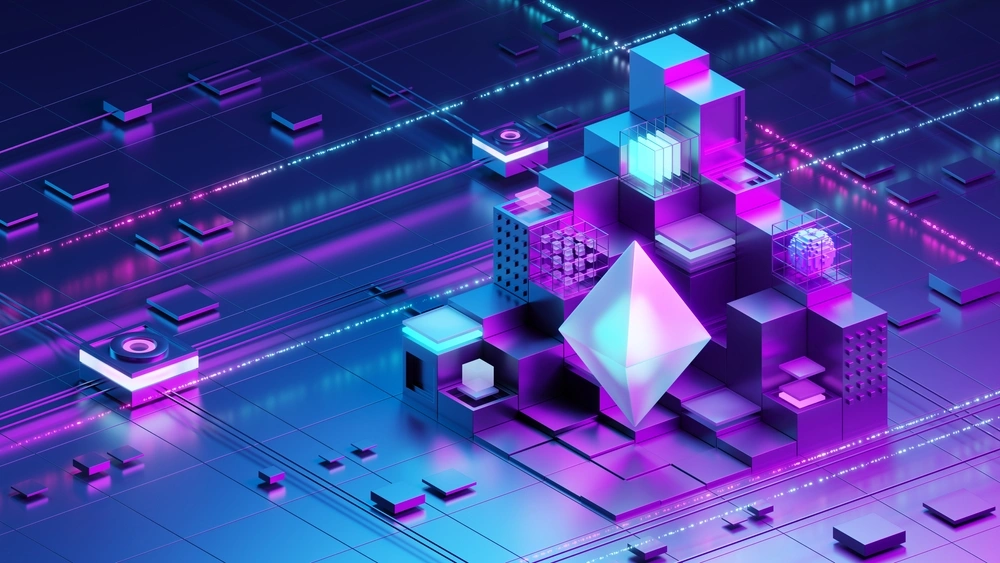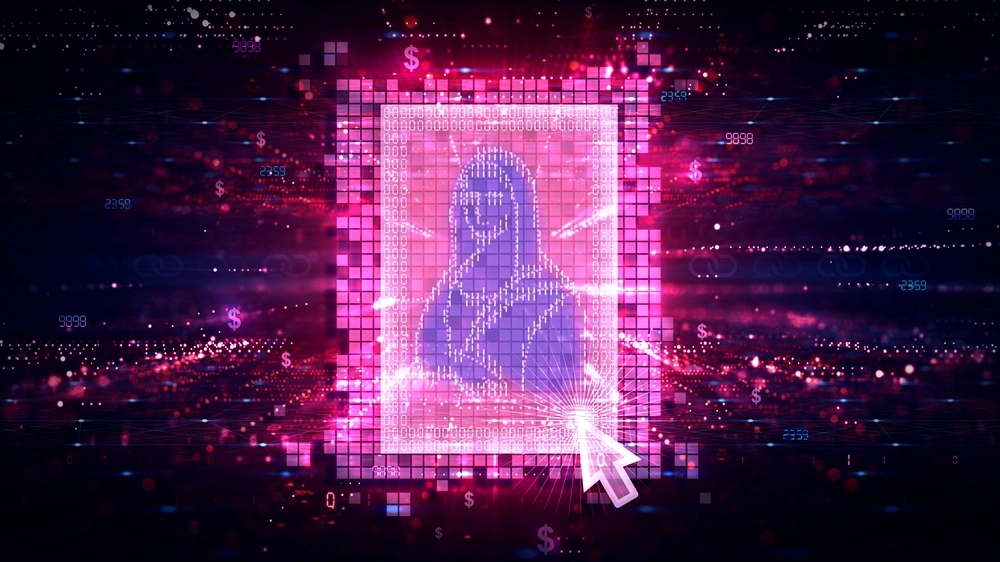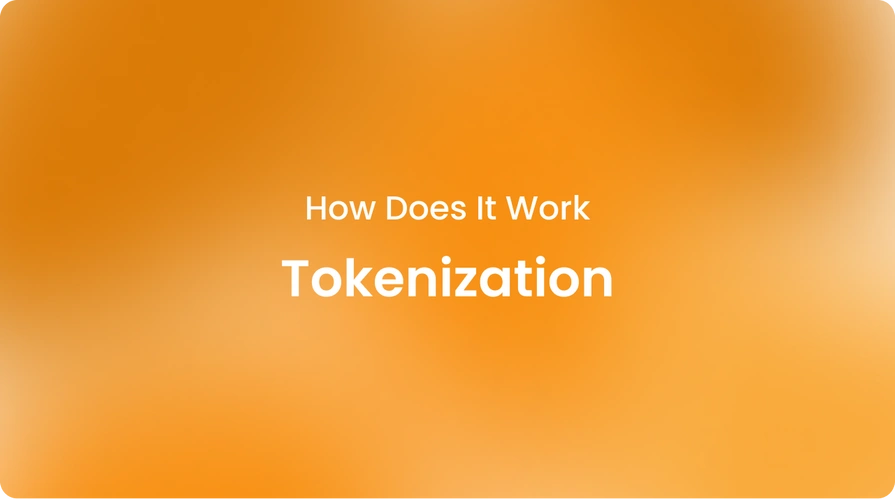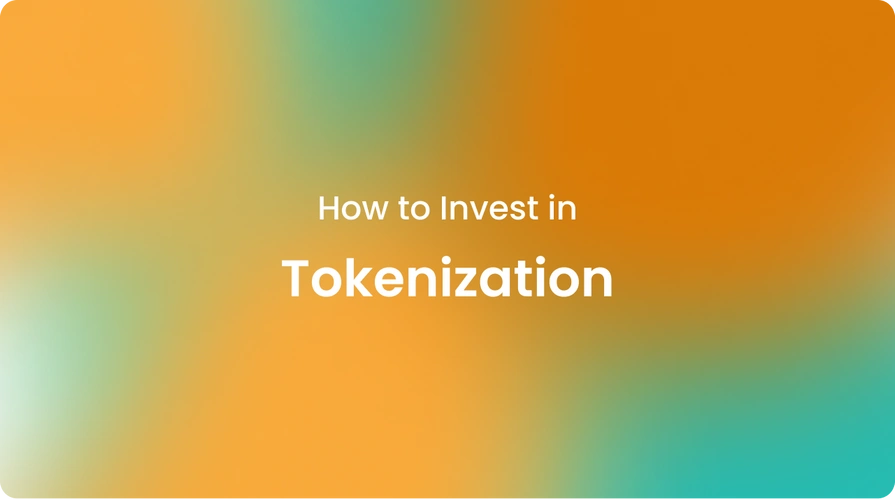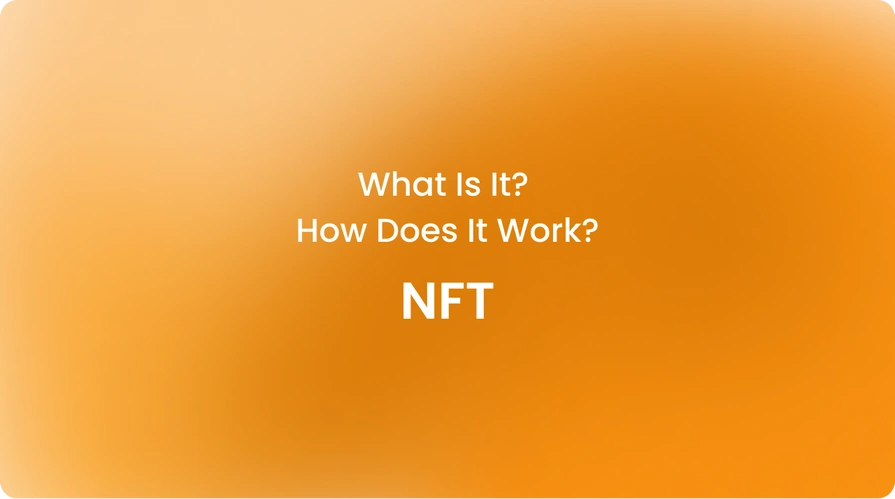|technology, knowledgehub
What Are Tokens and Tokenization in Blockchain?
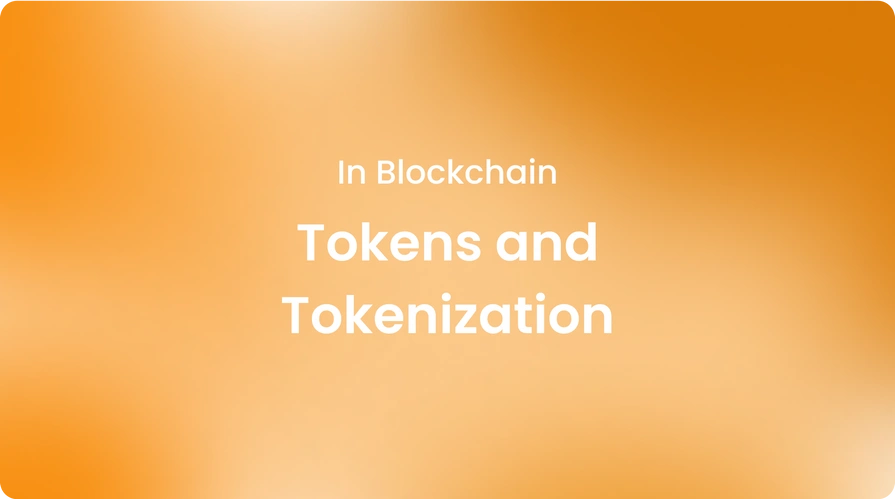
Blockchain technology has revolutionized how we think about assets and value transfers, and one of the most significant developments has been the rise of tokens and tokenization.
In this blog, we will explore what tokens are, different types of tokens, how tokenization works, and real-world examples of tokenized assets. By the end, you'll understand why many believe tokenization could unlock trillions in value and bring a wave of innovation across multiple industries.
In the most basic sense, a token is a unit of value that exists on a blockchain. It can represent either an existing traditional asset like stocks, real estate, or art or an entirely new digital asset.
Tokenization is the process of converting rights to an asset into a blockchain-based digital token. As mentioned earlier, this allows assets that traditionally couldn't be transferred electronically to now have a digital representation through which transactions can occur.
How do tokens work in blockchain?
Tokens use blockchain technology to record transactions and transfers of value in a decentralized digital ledger. Smart contracts embedded in the blockchain dictate the functions and transferability of each token.
For example, a smart contract may state that certain tokens represent ownership shares in a company that pays dividends. This allows programs on the blockchain to automatically enforce these rights and obligations.
The blockchain provides an open and immutable record of who owns what, which doesn't require a central authority. Overall, this is how tokens work in blockchain.
What are the benefits of tokens in blockchain?
There are several advantages to using tokens on blockchain as compared to traditional assets. First of all, they enable fractional ownership, which lowers the barrier of entry for investing. You no longer need to own an entire asset.
Second of all, transactions can take place 24/7 globally, which opens up new markets. Assets that were previously illiquid can now be traded at any time from anywhere in the world.
Tokens also remove middlemen and reduce transaction costs. Peer-to-peer transfers don't require brokers or exchanges to charge a fee with tokens.
What is an example of a token?
Bitcoin is likely the most well-known example of a crypto token. However, many blockchain projects create their own tokens to power decentralized applications or represent futures on real-world assets.
For instance, Ethereum has the Ether (ETH) token, which is used to pay transaction fees on its smart contract platform.
Another example is EURK, which serves as a more stable alternative to volatile cryptocurrencies by being backed 1:1 with euro fiat currency reserves, as securely issued and audited by Cryptobunq.
What is the main difference between a cryptocurrency and a token?
The main difference is that cryptocurrencies like Bitcoin are designed to be standalone digital currencies for use in crypto payments and cryptocurrency exchanges, while tokens are often tied to specific blockchain-powered projects or represent assets.
Cryptocurrencies act as a native currency for their own blockchain, whereas tokens have additional utility properties defined by the services or assets behind them.
In summary, cryptocurrencies are currencies first, while tokens can act as currency but take on additional roles as well. If you need further comparison, you can check out our “coins vs. tokens” guide.
What are the different types of tokens?
There are a few main types of tokens:
Utility tokens
Power applications on a specific blockchain, like ETH, or pay for services like file storage.
Security tokens
Security tokens represent ownership in real-world assets like shares of a company or real estate. These are regulated tokens akin to traditional securities.
Stablecoins
Stablecoins attempt price stability by being pegged to another asset like fiat currency, commodity prices, or interest rates. Examples include euro stablecoins like EURK.
Asset-backed tokens
Represent claims on physical assets like gold, real estate, art, or other properties. But it is the token itself, not the underlying asset, that is traded.
Tokens serve many roles, from powering apps to tracking ownership to improving financial instruments. Their versatility, from gaming tokens to NFTs, extends blockchain's uses far beyond basic currencies and payments.
How does the tokenization process work?
The tokenization process essentially involves creating digital tokens on a blockchain that mirror or represent the rights to a real-world asset. First of all, the developer determines things like the total supply of tokens, their properties, and how they will be distributed.
Second of all, they integrate smart contracts that codify the attributes and functionality of the tokens, like the ability to fractionalize ownership. The developer also works with auditors to verify the proper creation and issuance of the tokens.
Once minted on the blockchain, the digital tokens can then be transferred peer-to-peer at any time, like traditional cryptocurrencies or securities. Notably, many assets can now be fractionalized due to the small minimum investment sizes tokens enable.
Additionally, we have full guides for you to have a comprehensive understanding of this subject. You can check “What is tokenization?” and “Cryptocurrency tokenization” for more details.
What are the benefits of tokenization?
Tokenization provides numerous potential advantages across different industries. It allows previously illiquid assets to become tradable 24/7 on blockchain exchanges. This could significantly increase liquidity for everything from real estate to fine art.
It also reduces transaction friction and costs by removing middlemen from processes like payments. Perhaps the greatest benefit of tokenization is enabling fractional ownership, which opens the door globally to investing in high-value assets using even small amounts that were previously impossible.
Tokenization essentially creates an entirely new digital financial system built on blockchain. As a blockchain company offering various services in crypto and blockchain, Cryptobunq aims to bring these advantages to applications through its expert services as a one-stop-shop crypto service provider.
What is an example of tokenization in crypto?
An illuminating real-world case study of tokenization is real estate. Over 85% of people in India and 30% in East Africa lack access to traditional mortgages and credit to invest in property.
However, thanks to tokenization projects, people in these emerging markets can now own fractional shares of premium apartments and villas using just their smartphones by investing in tokenization.
This trend is expected to accelerate further according to a recent report, which indicates tokenized assets will make up about 10% of GDP by 2030.
What are the types of tokenization?
Tokenization can be applied to various classes of real-world assets, each with its own considerations and benefits.
The main types of tokenization include:
Security tokenization
This is digitally representing traditional securities like equities, bonds, funds, etc. governed by securities regulations.
Real-world asset tokenization
RWA tokenization covers physical assets like real estate, art, collectibles, and equipment financed through security tokens. One of the most innovative ways of doing this is real estate tokenization.
Debt tokenization
Debt tokenization is the issuing of tokens to digitally manage loans, invoices, and other debt instruments on the blockchain.
Commodity tokenization
Representing precious metals or scarce raw materials to introduce liquid markets.
Revenue tokenization
Granting future revenue streams, royalties, or profit participation as tokens.
Each type of tokenization opens new possibilities by blending traditional assets with blockchain programmability and transparency. Overall usage will expand across assets and industries.
What is the difference between tokens and tokenization?
Tokens refer to the actual blockchain-based assets, whereas tokenization denotes the process of creating, issuing, and managing tokens.
Tokenization leverages blockchain to represent real-world value in digital tokens, but tokens themselves have no meaning without being tied to an underlying asset or purpose.
Tokens and tokenization work together; however, without tokenization, there would be no tokens, and tokens lack real utility without being anchored to some off-chain value through tokenization. Both concepts are rapidly expanding blockchain's reach into new domains.
The bottom line
Blockchain technology's combination of coins vs. tokens, tokenization, and smart contracts is revolutionizing how value is tracked and transferred digitally. Although still emerging, the market for tokenized assets could grow tremendously over the next decade, according to experts.
As a crypto-friendly digital bank offering various services in crypto and blockchain, Cryptobunq aims to power this evolution by providing necessary tools like EURK stablecoins and crypto custody through its custody and wallets, exchange APIs, tokenization solutions, and more.
The future of tokenization remains bright, as it promises to bring efficiencies to legacy systems while spreading access to investing globally in an equitable way.
If you want to start exploring these benefits yourself, Cryptobunq is a secure crypto service company where you can integrate with them. Contact us today and start your journey in the blockchain ecosystem securely with expert guidance!
